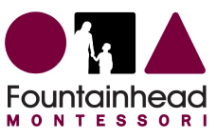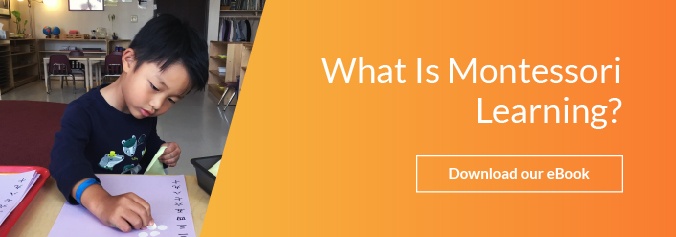It is not uncommon for a second language to be introduced at the high school level in a public education. But there is substantial evidence that shows as the brain develops, a second language is learned in different and more beneficial ways specifically at a young age. Is a language immersion program important for young children? The answer again and again appears to be, “Absolutely.” When a young child is exposed regularly to a second language, they can absorb it more fully. Young children are not worried about proper grammar or the conjugation of verbs. But rather, young children naturally desire to simply communicate.
What is a language immersion program?
A language immersion program puts 3-6 year olds, which is a time where a child’s brain is flexible enough to learn a second language proficiently, in a Montessori classroom. The students are able to explore and learn as they would in a typical Montessori program except the instruction is 100% in the second language. For example, if your child is a native English speaker who attends a Montessori school, the immersion class may be totally in Spanish. When in a Spanish immersion class, they will work on tasks and skills like normal except their teachers will be speaking Spanish. The constant exposure to the Spanish language will prompt your child to want to understand the songs, poems, and stories that will encourage them to use the Spanish they glean from regular interactions and start building a foundation for Spanish in their brains.
Benefits for learning a second language at a young age
Learning a second language may seem like a skill that may come in handy a few times but not as necessary as learning how to read or progressing in math. But studies display more and more data showing the benefits of learning a second language and the ease of learning a second language at a young age.
Benefits such as:
- Being able to communicate with more people
- Having the capacity to work out mental puzzles more easily
- Reduces the chance of developing Alzheimer's later in life
- Increases the ability to concentrate and focus
- Understanding how language works and often improve their first language skills
- Become more creative
- Improves reading and listening skills
And as this subject is studied more and more, the list seems to continually go on.
Not only will your child reap the added benefits of studying a second language, the actual learning will not be as difficult as it would be for an older student or an adult. The more set an adult brain becomes in their first language, the more they will have to mentally translate the new language through their first language filter before the second language words can come out of their mouth. For a child, they can absorb the new language with the ease of which they learned their first. It will become second nature. To give your child the incredible gift of learning a second language at a young age, contact Fountainhead Montessori School today to learn more about the Spanish and Chinese immersion classes offered.












Let us know what you think about this post
Put your Comment Below: